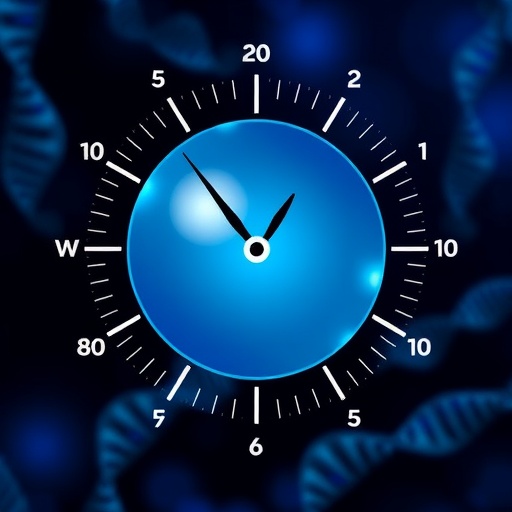Recent advances in reproductive technology have unlocked new avenues for addressing infertility, a challenge that affects millions of couples worldwide. Among these innovative techniques, Intracytoplasmic Sperm Injection (ICSI) has emerged as a revolutionary procedure for assisting couples struggling with male factor infertility. This method involves directly injecting a single sperm cell into an egg, enhancing the chances of fertilization. However, recent research has highlighted the complex interplay between the timing of ICSI and the impact of sperm DNA fragmentation on the success of this procedure.
The study conducted by Yan et al. elucidates a critical aspect of ICSI: the timing of sperm injection relative to the state of the sperm’s genetic material. Sperm DNA fragmentation is a condition where the DNA within sperm cells is damaged, which can severely hamper the fertilization process and subsequent embryonic development. The findings of this study suggest that the timing of ICSI plays a significant role in determining the extent to which sperm DNA fragmentation impacts the overall success of the procedure.
One of the fundamental questions surrounding ICSI is how variations in the timing of sperm injection could influence the outcomes associated with sperm quality. The research indicates that injecting sperm into the egg at specific stages can either mitigate or exacerbate the effects of existing DNA fragmentation. This discovery calls for a re-evaluation of standard ICSI protocols, particularly as clinicians seek to optimize treatment regimens for patients facing male infertility issues.
Moreover, the study highlights the need for personalized treatment approaches in ICSI procedures. Different patients face unique circumstances regarding sperm quality and timing, suggesting that a one-size-fits-all model may not suffice. By tailoring the timing of sperm injection based on individual patient profiles and sperm DNA fragmentation levels, clinicians may substantially improve the chances of success, making this research crucial for advancing reproductive medicine.
The implications of this research extend beyond just clinical practices; they also prompt further inquiries into the mechanisms behind sperm DNA fragmentation. Understanding the origins of this fragmentation could pave the way for developing preventive measures or targeted treatments intended to safeguard sperm quality before ICSI procedures. This proactive approach to managing male infertility could lead to a significant reduction in the obstacles faced by couples hoping to conceive.
Additionally, the study by Yan et al. emphasizes the critical nature of sperm selection in the ICSI process. While the technique allows for the use of seemingly healthy sperm, it’s essential to consider the genetic integrity of the selected sperm. Researchers advocate for improved screening methods to better assess sperm quality, including advanced techniques that can minimize the risk of selecting sperm with fragmented DNA. This methodology could tremendously enhance ICSI success rates, providing hope to many couples struggling with infertility.
The broader context of reproductive health also deserves attention in light of this research. With rising infertility rates and increased awareness of male fertility issues, the need for effective solutions remains paramount. The insights from Yan et al.’s findings could influence not only individual treatment decisions but also public health strategies aimed at addressing infertility on a population level.
Furthermore, the research outlines that the timing of ICSI isn’t just about moments but rather about the biological intricacies involved in fertilization. Each phase of the reproductive cycle has its own set of dynamics, and the timing of sperm injection must be harmonized with these natural processes for optimal results. A deeper understanding of these dynamics could ultimately lead to innovations in reproductive technologies.
As the medical community digests these findings, it is essential to continue exploring evidence-based practices that can enhance ICSI outcomes. This involves not only looking at sperm quality and timing but also considering other contributing factors such as ovarian response and embryo quality. Through collaborative research efforts, a comprehensive framework for improving ICSI techniques can be developed.
Scientific research is inherently collaborative, and studies like this one highlight the importance of multi-disciplinary approaches in tackling complex medical challenges. The intersection of reproductive biology, genetics, and clinical practice offers fertile ground for future studies that could lead to breakthroughs in fertility treatments. Establishing partnerships between clinicians, researchers, and laboratories will be pivotal in translating research discoveries into real-world applications.
In conclusion, the findings from Yan et al.’s study provide a fresh perspective on the intricate relationship between ICSI timing and sperm DNA fragmentation. As couples navigate the emotional and physical challenges of infertility, advancements in reproductive technology hold the promise of hope. It is through rigorous research and clinical innovation that we may ultimately unravel the complexities of human reproduction and offer viable solutions to those yearning to start a family.
Subject of Research: The impact of Intracytoplasmic Sperm Injection (ICSI) timing on the influence of sperm DNA fragmentation on ICSI outcomes.
Article Title: Intracytoplasmic Sperm Injection (ICSI) Timing Affects the Influence of Sperm DNA Fragmentation on ICSI Outcomes.
Article References:
Yan, G., Tang, D., Su, Z. et al. Intracytoplasmic Sperm Injection (ICSI) Timing Affects the Influence of Sperm DNA Fragmentation on ICSI Outcomes. Reprod. Sci. 32, 2692–2702 (2025). https://doi.org/10.1007/s43032-025-01924-5
Image Credits: AI Generated
DOI: https://doi.org/10.1007/s43032-025-01924-5
Keywords: Intracytoplasmic Sperm Injection, ICSI, sperm DNA fragmentation, infertility, reproductive technology.
Tags: assisted reproductive techniques.embryonic development challengesfertilization success ratesgenetic material in sperm cellsICSI procedure effectivenessICSI timing effects on sperm DNAinfertility treatment innovationsmale factor infertility solutionsreproductive technology advancementssperm DNA fragmentation impactsperm quality and timingtiming and fertilization outcomes





